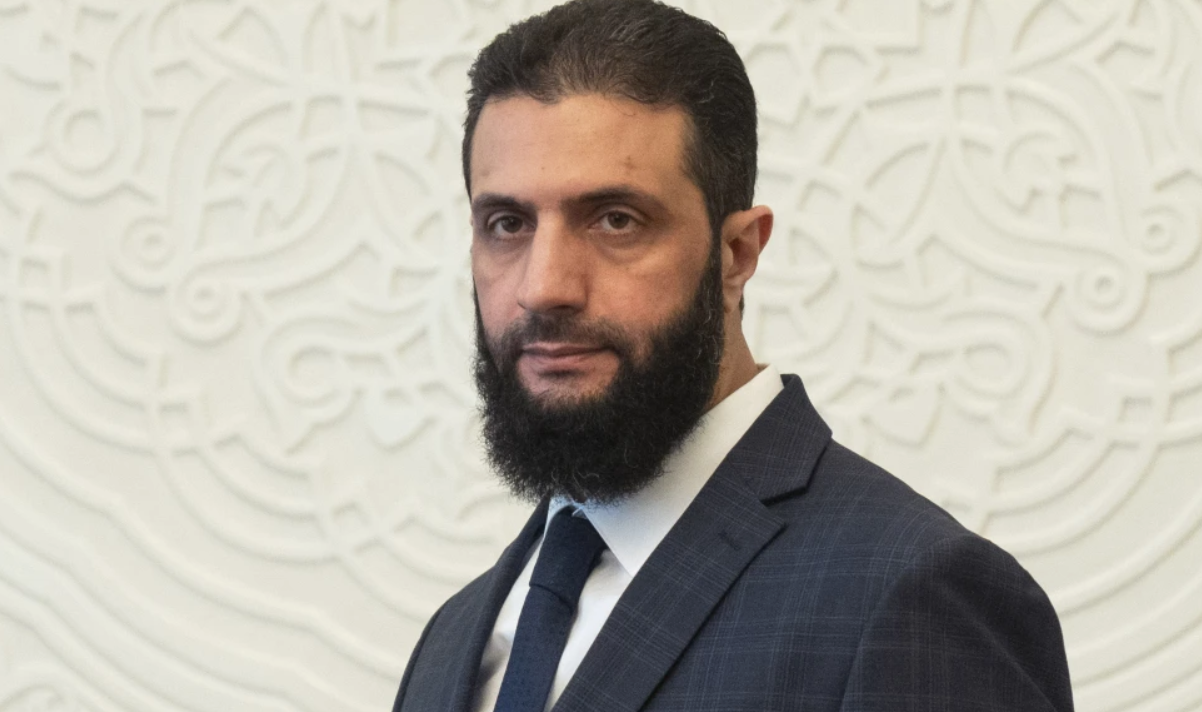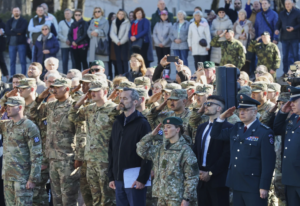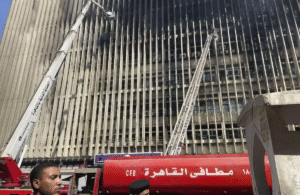Syria’s interim president, Ahmad al-Sharaa, made his first international trip on Sunday, visiting Saudi Arabia. This move appears to signal Syria’s shift away from Iran, its previous key regional ally.
Al-Sharaa, who was once connected with al-Qaida, arrived in Riyadh with Syria’s foreign minister, Asaad al-Shaibani. They traveled on a Saudi jet, and a Saudi flag could be seen on the table behind them.
Saudi state television highlighted the significance of al-Sharaa’s first foreign visit, emphasizing that Riyadh was his initial destination. At the airport, Syria’s new three-star flag was displayed next to Saudi Arabia’s flag as al-Sharaa, dressed in a suit and tie, stepped off the plane. During his visit, he was set to meet with Saudi Crown Prince Mohammed bin Salman, the country’s de facto ruler.
Saudi Arabia was one of the Arab countries that heavily funded insurgent groups aiming to overthrow former President Bashar Assad after Syria’s 2011 Arab Spring protests led to a violent crackdown. However, these groups were ultimately pushed back as Assad, with support from Iran and Russia, managed to turn the conflict into a stalemate.
The situation changed with the rapid December offensive led by al-Sharaa’s group, Hayat Tahrir al-Sham (HTS). Although HTS was once linked to al-Qaida, it has since distanced itself from its former associations.
Since then, al-Sharaa and HTS have been careful in managing their public image. The interim president has adopted a military style resembling that of Ukrainian President Volodymyr Zelenskyy, appointed women to various roles, and worked to maintain relationships with Syria’s Christian and Shiite Alawite communities.
Al-Sharaa has also kept Iran and Russia at a distance. Iran has not yet reopened its embassy in Damascus, which had been central to its “Axis of Resistance” operations, including alliances with Hezbollah and other partners. Meanwhile, Russia, which values its military bases in Syria, offered refuge to Assad when he fled during the conflict’s escalation.
These actions seem to be aimed at reassuring the West and attempting to have the harsh sanctions on Syria lifted. Rebuilding Syria after more than a decade of war is expected to cost hundreds of billions of dollars, and addressing the needs of its people, many of whom are still living in poverty, will be a significant challenge.
In January, Saudi Foreign Minister Prince Faisal bin Farhan visited Damascus and stated that Saudi Arabia has been “actively engaging in dialogue” to lift the sanctions on Syria. Unlike al-Sharaa’s key allies, Turkey and Qatar, Saudi Arabia re-established ties with Assad in 2023, along with most other Arab nations. Lifting the sanctions could greatly strengthen their relationship.
Meanwhile, Syria’s interim government continues to face challenges from the Islamic State and other militant groups. On Saturday, a car bomb exploded in Manbij, a city in Aleppo province, killing four civilians and injuring nine, according to SANA, citing civil defense officials.
Turkish-backed Syrian rebels had taken control of Manbij in December as part of Turkey’s effort to secure a buffer zone along its border in Syria.













